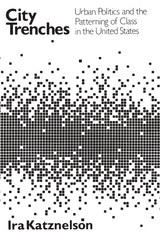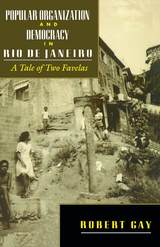

What makes an urban neighborhood tick? Why do some of a city’s poorest neighborhoods have cleaner streets and less vandalism than many of its more affluent areas? The public services that make certain neighborhoods stand out are often provided by the local residents themselves—but what makes them take action?
The setting for Matthew Crenson’s book is Baltimore. In this surprising, powerful work, he finds that such neighborhood action does not arise from a strong sense of neighborliness or community feeling. Instead, it is precisely when neighbors dislike one another that some features of informal self-organization emerge. Residents’ efforts to maintain public order, health, and safety frequently spring from social chaos and discord rather than from homogeneity. In fact, Crenson discovers that in many cases community polities arise not from the cohesiveness of close-knit “urban villages” but from the social diversity, inequality, and conflict that are associated with urbanism itself.
In an era when the inability of government institutions to solve the difficulties of city living is starkly apparent, understanding unofficial neighborhood government is critically important, and it can also clarify the foundations of political order itself. Crenson’s achievement is to redefine neighborhood problem-solving as the true “grass roots” urban politics, and in doing so he reveals why Baltimore is one of the few big cities that really work in America today.

In urban America, large-scale redevelopment is a frequent news item. Many proposals for such redevelopment are challenged—sometimes successfully, and other times to no avail. The Politics of Place considers the reasons for these outcomes by examining five cases of contentious redevelopment in Pittsburgh, Pennsylvania, between 1949 and 2000.
In four of these cases, the challengers to redevelopment failed to create the conditions necessary for strong democratic participation. In the fifth case—the proposed reconstruction of Pittsburgh’s downtown retail district (1997–2000)—challengers succeeded, and Crowley describes the crucial role of independent nonprofit organizations in bringing about this result.
At the heart of Crowley’s discussion are questions central to any urban redevelopment debate: Who participates in urban redevelopment, what motivates them to do so, and what structures in the political process open or close a democratic dialogue among the stakeholders? Through his astute analysis, Crowley answers these questions and posits a framework through which to view future contention in urban redevelopment.

READERS
Browse our collection.
PUBLISHERS
See BiblioVault's publisher services.
STUDENT SERVICES
Files for college accessibility offices.
UChicago Accessibility Resources
home | accessibility | search | about | contact us
BiblioVault ® 2001 - 2024
The University of Chicago Press









